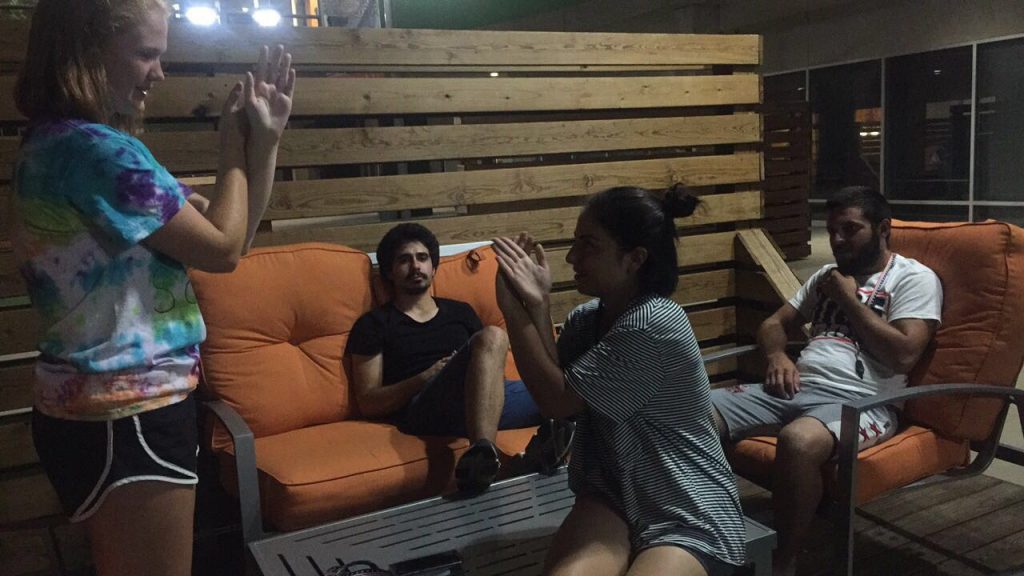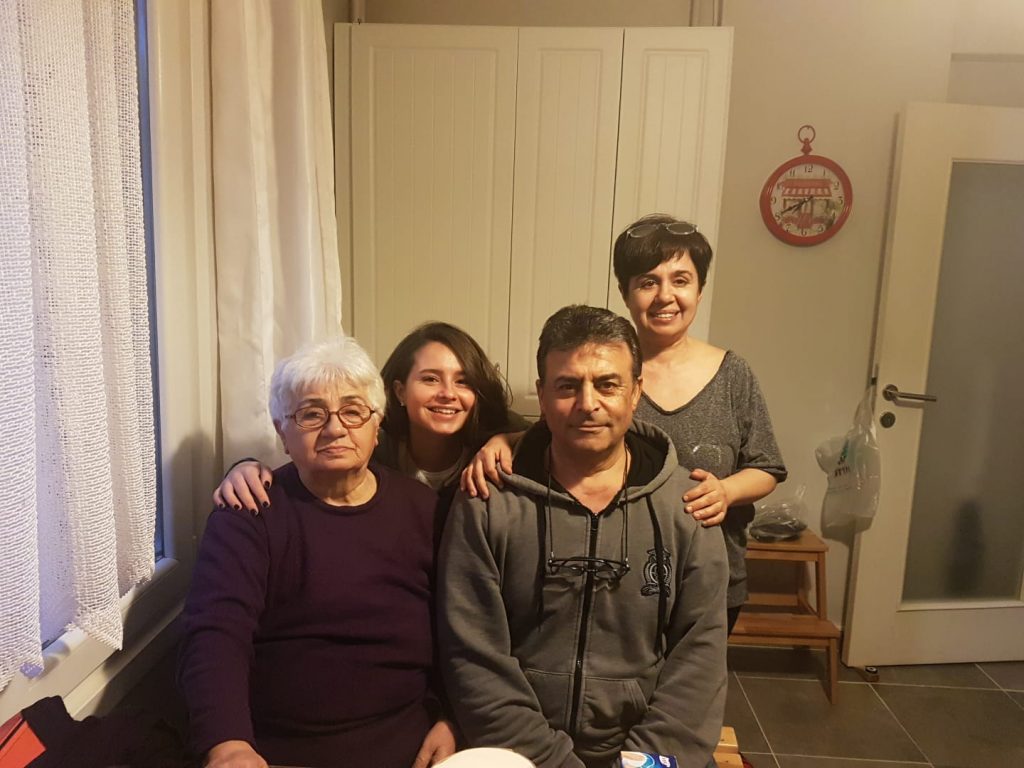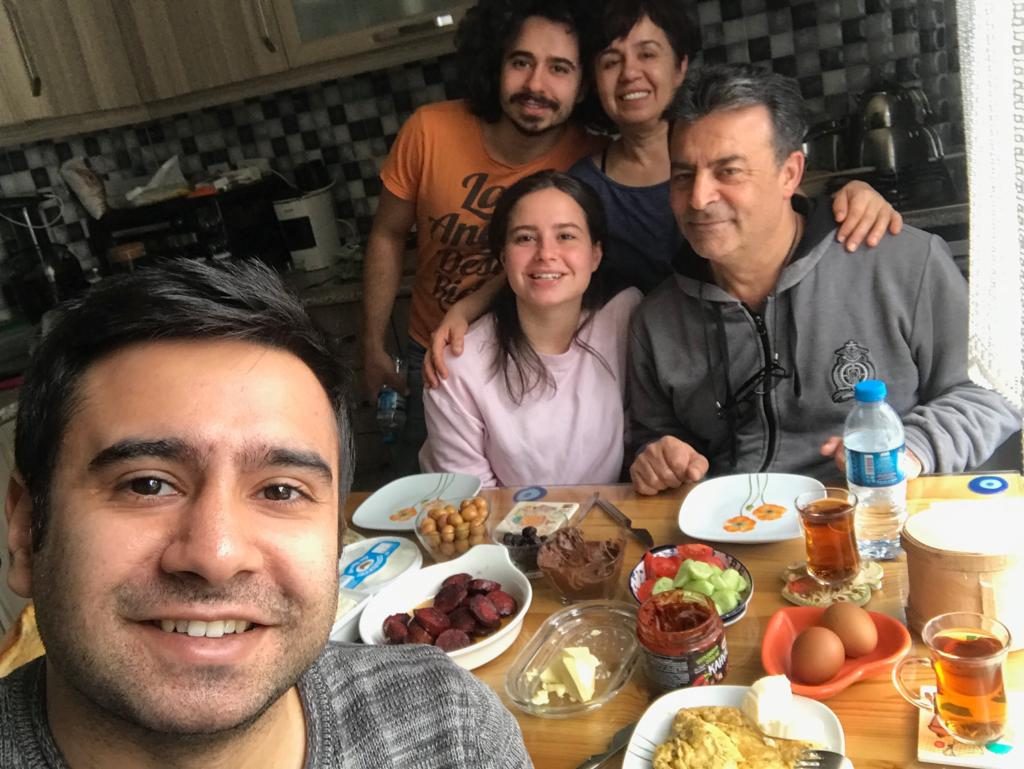“Death toll rises to 50 in New Zealand mosque shootings,”
“The gunman intended to continue his attack,”
“Manifesto filled with anti-Muslim Screeds-”
These are the words I read as I attempt to
Write a poem about an interview with my
Muslim brother.
I think back to the summer
My family welcoming him into our home
The laughs we shared after work into the late of night
Teaching each other new things
Protecting and Loving each other fiercely
Despite the obvious difference
In our skin and voice
When people find out that you are Muslim
They shift in their person
They go from friendly conversation
To barely saying anything at all
All because of what society has taught people to think
Uzay told me that if he could change anything about society
The religions would not be important
It would be who you are, what you do- that would be important-
And yet, the hatred is rooted so deep that
Senseless genocide seems to be the only response to difference
For a class about genocide, I am writing a poem about genocide,
Because I am reminded all the time that Uzay could be killed
For what he was born into– and not what he got to choose
Some say that Ignorance is bliss, but ignorance is far from bliss
Ignorance is the reason that I fear for the loss of my dear friend
Ignorance is the reason that muslims are universally stereotyped as violent
Ignorance is why 50 people that were trying to worship in their safe space
Are now dead
So when will it end?
Artist Statement:


I have never really written a poem, nor did I think I could, but passion made it seem like one of the easiest things that I have ever done. I seemed to have too many words for a narrative that made sense, so this free verse style of fragmented thoughts worked well to depict everything that was on my mind in the moment.



During my interview with Uzay, I asked about some things that I saw firsthand during his time in the United States. The stanza that starts, “When people find out that you are Muslim-,” is in response to a question that I asked- “How do you find people react to your religion?” Over the summer I saw people meet my friend with hesitation, aware of his foreign ethnicity at first glance. They treated him so differently from me and my fellow native co-workers, approaching him with fear and lack of knowledge. Anytime I see things in the news like the New Zealand Mosque shooting- which is referenced in my poem- I am reminded of how vulnerable Uzay is in this world that doesn’t practice tolerance and universal acceptance. Much like the persecution of Jewish people for their religion, the Muslim people of today are facing dangers for their religious beliefs as well. Because of the connection I was able to draw between the experiences, I couldn’t think of anything better to write about for this project.

Ignorance in our society creates victims by instilling fear and encouraging hostility and violence amongst individuals. It is like a disease: it is hidden from us, and it is dangerous. It can spread from person to person, changing people’s attitudes and controlling people’s actions, as mentioned in the poem Uzay/Space. When a person confronts an individual’s difference, “[t]hey go from friendly conversation/To barely saying anything at all/All because of what society has taught people to think.” Society has created these perpetrators of ignorance, closing them off from the world around them. It causes people to act coldly towards their fellow human, to the point in which they are stripped from their humanity all together. When left unattended, ignorance can even lead to violence. The poem mentions that ignorance is not a virtue, but a vice, in which “[s]ome say that Ignorance is bliss, but ignorance is far from bliss…Ignorance is the reason that Muslims are universally stereotyped as violent.” Ignorance has fueled these perpetrators to form these anti-Muslim groups, because of their fear, hatred and lack of knowledge of the Islamic people. The story “The Butcher’s Tale” by Helmut Walser Smith approaches this topic in a similar fashion, discussing how society approaches antisemitism. The story talks about a small Prussian town accusing Jews of the ritualistic murdering of a young boy. Christians feared the Jews because of an ancient story known as the blood libel, in which “every year at Passover, Jews ritually slaughter Christian children and use their blood to bake matzo.” Even though it is an ancient story, the Christians believed it as truth, where these “[c]harges of ritual murder quickly led to violence, at first sporadic, then increasing in intensity, finally culminating in a series of major anti-Semitic riots.” The towns lack of understanding had led them to kill Jewish people, out of fear of the unknown. Ignorance took a hold of this town, as it did the shooters in New Zealand, as it does now in everyday life. Society has allowed for this ignorance to spread amongst people and has perpetuated the victimization of others.
Fear is the reason for a lot of senseless actions in our world today. And, this fear is a result of inaccurate stereotypes. Because of this, when a person acts out of fear, they tend to carry out irrational actions. In “Uzay/Space”, Gabrielle discusses the idea of how a person is viewed as a regular person when religion is not a factor, however, as soon as there is a discovery about that person’s religion, fear comes to play (Moss, “Uzay/Space”). This fear, as earlier mentioned, is a result of stereotypes in that area. I have been told my whole life about how Muslims were violent, cunning, and crafty (Moss, “Uzay/Space”). And because of this generalization of Muslims, this has always impacted my interactions with them in Nigeria – my home country. This issue was addressed in the Gabrielle’s poem when she said ignorance is the reason that Muslims are universally stereotyped as violent. When I started college in the United States, I made friends that were of good moral standing, had amazing personalities, and were Muslim. This just ultimately destroyed the stereotypes that I use to consider as true. One thing I noticed about Gabrielle’s poem is how she connects Uzay, her partner, to how Muslims are been treated today, She doesn’t ever say her partner was directly affected, but instead, she talks about how by being born into Islam, his identity already makes him a target of peoples fear and the irrational actions that accompany it.